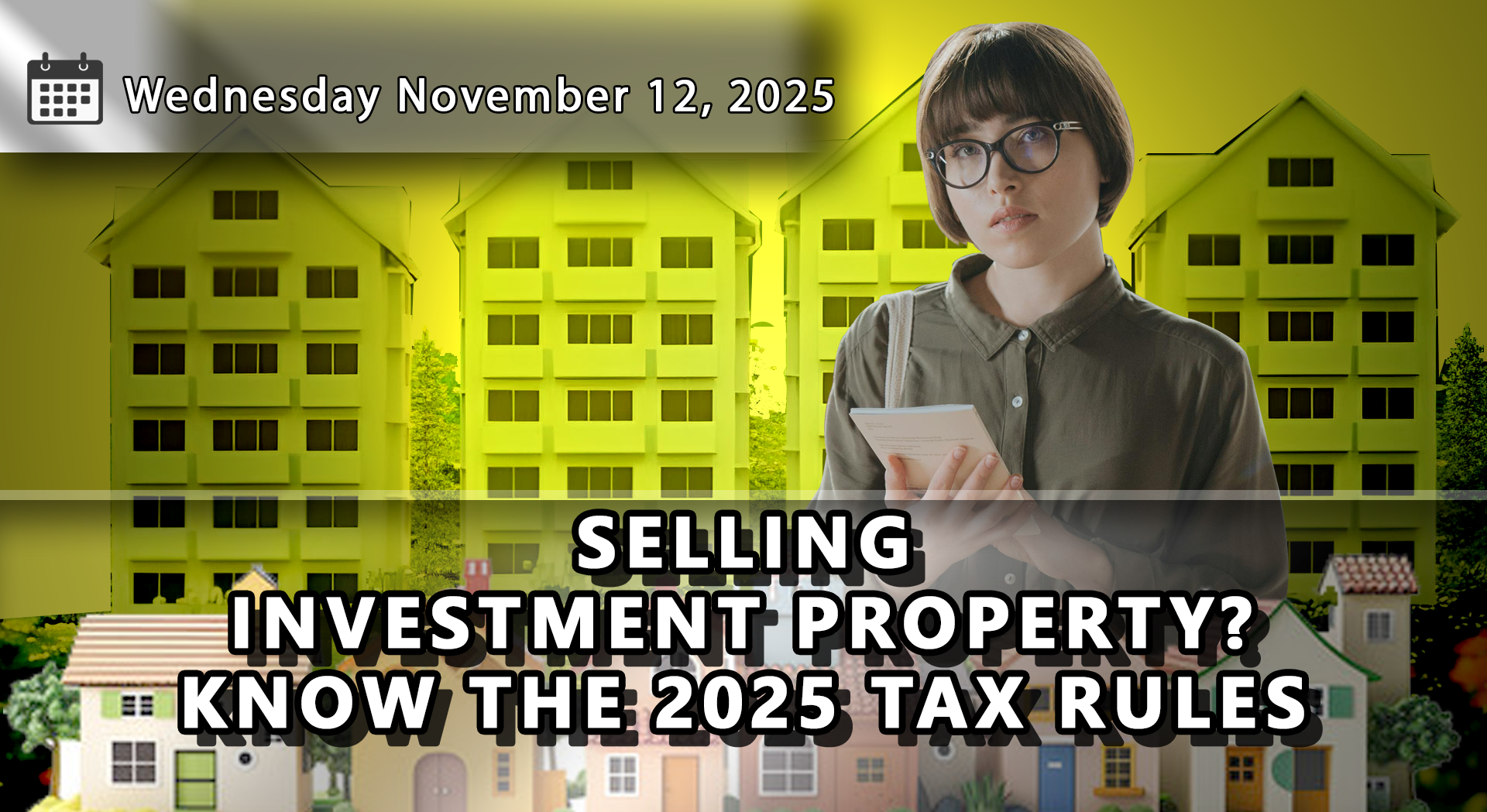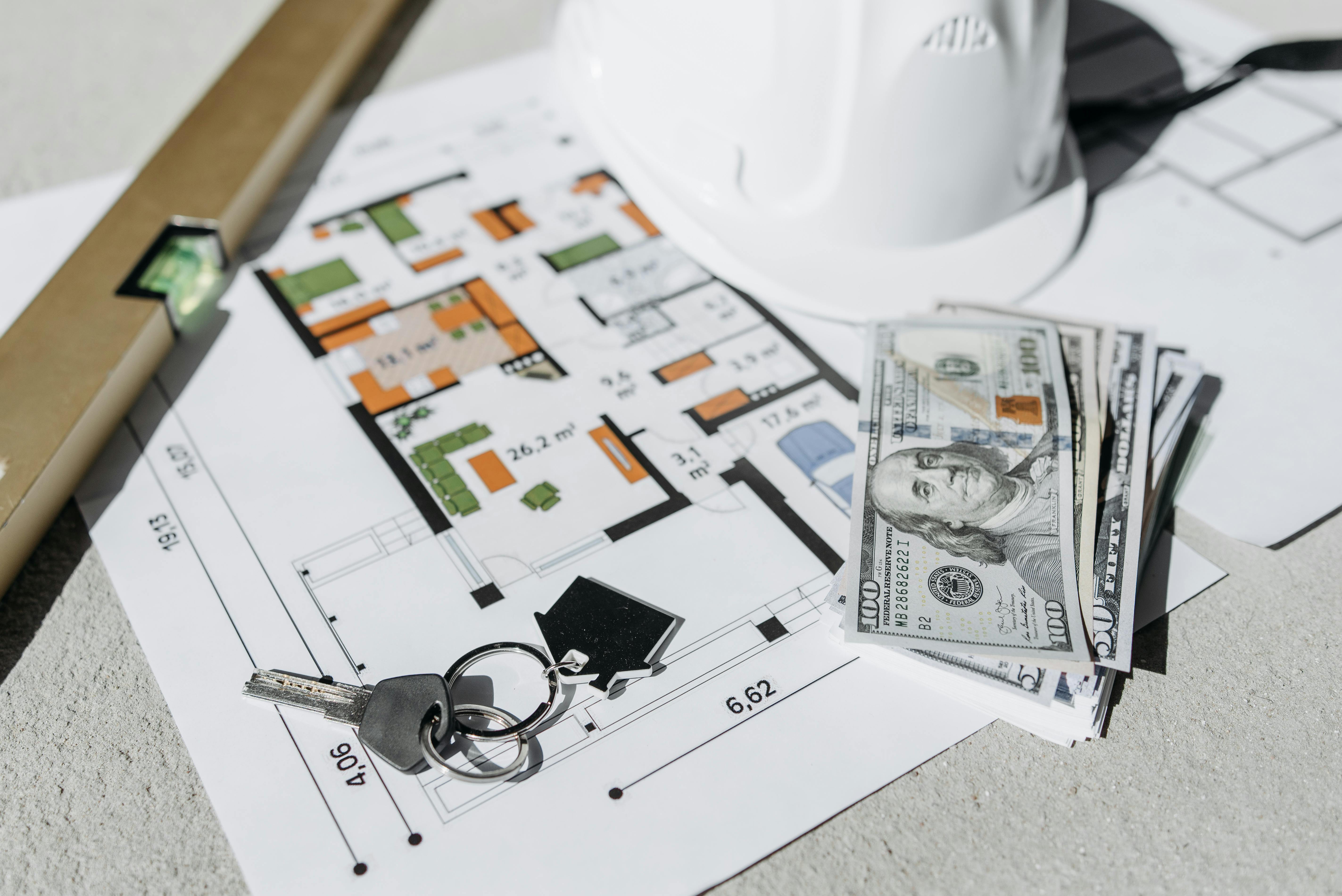Don’t Buy Or Sell In Canada Until You Read This
Wednesday, November 12, 2025

Canada’s tax landscape has seen many changes over the decades, and the capital gains tax in Canada real estate is one of the most significant. Introduced in 1971 during Prime Minister Pierre Trudeau’s government, with Finance Minister Edgar Benson at the helm, it marked a big shift in how Canadians were taxed. Interestingly, it came at the same time the inheritance tax was eliminated, helping to simplify the tax system and make it fairer.
Since then, the capital gains tax in Canada real estate framework has evolved—but its purpose has remained clear. It taxes profits made from asset appreciation, generates revenue for public services, and encourages Canadians to invest for the long term rather than chase quick gains. For homeowners and investors, understanding how it works—and how recent updates affect you - is crucial.
What Is Capital Gains Tax?

In simple terms, capital gains tax is what you pay on the profit you make when selling an asset for more than you bought it. That could be a car, stocks, or your house.
For example, if you bought a home for $400,000 and later sold it for $600,000, your profit—or “capital gain”—is $200,000. Today, only half of that ($100,000) is added to your taxable income, thanks to the 50% inclusion rate. How much tax you pay depends on your total income and the province where you file. For instance, the capital gains tax in Ontario rates depend on your overall income bracket and provincial tax structure.
Historically, the inclusion rate has shifted. From 1971 to 1988, Canada taxed 50% of gains at the top marginal rate. It rose to 66.67% in 1988 and to 75% in 1990, then gradually returned to 50% by 2000, where it remains today.
The Principal Residence Exemption

For homeowners, the biggest relief comes from the Principal Residence Exemption (PRE). If the property you’re selling was your family’s main home, you can avoid paying capital gains tax in Canada real estate entirely. To qualify, someone in your family must have lived there, and you must designate it as your principal residence the year you sell.
Think of it as a financial superhero—this exemption can save you thousands, even zapping the liability of your capital gains tax in Ontario to zero. It’s not just about a few extra dollars; it’s a major boost to your financial health every time you sell your home.
Things get trickier if your home wasn’t always just a home. Renting out part of it, using it for business, or switching it to a rental can limit the exemption, making part of the gain taxable.
Investment and Rental Properties

For Canadian investors, selling a rental property isn't as straightforward as selling a personal home. While the principal residence exemption shields homeowners from capital gains tax on primary property, rental properties are subject to taxation on both capital gains tax on second property in Canada and depreciation recapture.
Depreciation Recapture

Over the years, you may have claimed Capital Cost Allowance (CCA)—the tax deduction that lets you gradually write off the cost of a depreciable property, such as a rental building or equipment, over time. CCA helps reduce your taxable rental income by recognizing the wear and tear on your property to depreciate the value of the property, reducing your taxable rental income. However, upon selling the property, if the sale price exceeds the property's undepreciated capital cost (UCC), the previously claimed CCA must be "recaptured" and included as income. This recapture is fully taxable, unlike capital gains, which are only 50% taxable.
For instance, if you claimed $50,000 in CCA over the years and sell the property for $400,000, but the UCC is $350,000, the $50,000 difference is considered recaptured depreciation and is fully taxable as regular income.
Strategic Considerations
-
Timing of Sale: If you're nearing retirement or expect a significant drop in income, consider selling the property in a year when your income is lower to minimize the impact of capital gains tax in Canada real estate.
-
Tax Deferral Strategies: Explore options like the Lifetime Capital Gains Exemption (LCGE) for eligible small business shares or certain farm and fishing properties to reduce tax liabilities.
-
Professional Advice: Given the complexities of depreciation recapture and capital gains tax on second property in Canada, consulting a tax professional can help you navigate these waters effectively.
Why Good Records Matter

Maintaining meticulous records is crucial for reducing your taxable capital gain when selling a property. The Adjusted Cost Base (ACB) represents the total cost of acquiring and improving a property—it’s the amount you paid to buy it, plus any additional expenses that increase its value over time. These can include legal fees, land transfer taxes, and major renovations or additions.
When you sell, your capital gain is calculated as the selling price minus the ACB and any selling expenses (like realtor commissions). Increasing your ACB through proper record-keeping ensures you don’t pay more capital gains tax Ontario than necessary.
Capital Improvements vs. Maintenance
It's essential to distinguish between capital improvements and regular maintenance. Capital improvements, like adding a new roof or finishing a basement, increase the property's value and extend its life, thereby increasing your ACB. In contrast, routine maintenance, such as painting or fixing leaks, does not affect your ACB.
Record-Keeping Tips
-
Keep All Receipts: Retain invoices for all capital improvements and acquisition-related expenses.
-
Document Work Done: For significant renovations, keep detailed records of the work performed, including contracts and permits.
-
Track Financing Costs: If you took out a loan to finance improvements, include interest and other related costs in your ACB.
Updates in 2025
There has been a lot of talk about capital gains tax in Ottawa. A proposed hike in the inclusion rate to 66.7% for large gains caused concern in 2024, but the government cancelled the change in March 2025. That means the 50% rate remains for now, giving homeowners and investors some clarity.
The Lifetime Capital Gains Exemption (LCGE) for small business shares and certain farm or fishing properties has risen to $1.25 million. While most residential homeowners won’t benefit, entrepreneurs and landowners will.
Looking Ahead to 2026
Things may change in 2026. New rules will allow individuals to realize up to $250,000 in annual capital gains at the current 50% rate. Gains above that could face higher taxes. For investors planning big sales or selling multiple properties, the timing of capital gains tax on second property in Canada could significantly impact your tax bill.
Through all this, the principal residence exemption remains protected. Homeowners can continue to sell their family homes tax-free - a powerful tool for building wealth in Canada.
Tips for Homeowners and Investors
-
Plan your timing: Keep the 2026 changes in mind if you’re expecting a large sale.
-
Keep detailed records: Renovation receipts and legal fees reduce your taxable gain.
-
Understand change-of-use rules: Renting out your property can trigger unexpected capital gains tax implications in Ontario.
-
Seek professional advice: If you have multiple properties or high-value gains, a tax advisor can help.
Final Thoughts

For most homeowners, selling a primary residence in 2025 remains a tax-free transaction. For investors, landlords, and entrepreneurs, capital gains tax in Canada real estate remains a crucial part of planning for profitability. By staying informed, keeping meticulous records, and consulting experts when needed, you can minimize your tax burden and make the most of your property investments.
Real Estate Investing is a real business, and you must treat it as such. From finding the right mortgage broker/lender, to using knowledgeable accountants and lawyers, to making sure you hire the right contractors, to finally, working with a real estate agent who knows the ins and outs of investing in real estate, it’s important to treat it like a business.
If you are thinking about becoming a real estate investor yourself, or you are already an investor and would like to leverage your current investments into more properties, or you are looking to sell one or more of your investment properties, give me a call at 905-683-7800. You can also email me at brian@briankondo.com. I’ll be your personal guide and walk you through every step of the investment property buying and/or selling process.
If you have any other real estate-related questions for me, you can reach me by calling 905-683-7800, or emailing me at brian@briankondo.com.
Thanks For Reading Today’s BLOG!
If you would like to see any of my previous blog posts, please click here.

Brian Kondo
Sales Representative / Team Leader
The Brian Kondo Real Estate Team
Re/Max Hallmark First Group Realty Ltd.
905-683-7800 office
905-426-7484 direct
brian@briankondo.com
www.BrianKondo.com
www.BrianKondoTeam.com
Homesellers - Find Out What Homes in Your Neighbourhood are Selling For! You can receive a FREE computerized printout of ALL recent Home Sales and Current Listings in your neighbourhood. Click here!
Best Buy Hotlist - You can receive a FREE list of the 10 Best Buys in your
specific price range sent to you at No COST or OBLIGATION.
Click here!
Your Home Sold Guaranteed or I'll Buy It!* No Gimmicks! For a Free Special Report that Details my Guaranteed Sale Program, visit: www.BriansGuaranteedSaleProgram.com.
Remember, your referrals change lives! We donate a portion of our income on every home sale to a great worthy cause like SickKids Hospital. To find out more visit: www.ReferForSickKids.com.
If you or anyone you know is considering making a move in the next little while, give me a call or pass on my number ... 905-683-7800 (Office) or 905-426-7484 (Direct).
#BuyAndSellRealEstate #BuyAndSellProperty #BuyingPropertyInCanada #DontBuyInCanadaUntilYouReadThis #DontSellInCanadaUntilYouReadThis #CanadaRealEstateMustRead #CanadaRealEstateTip #ReadThisBeforeCanadianHomes #CanadianHousingGuide #CanadaHomeBuyOrSellTip #BeforeYouBuyInCanada #BeforeYouSellInCanada #CanadaPropertyAdvice





